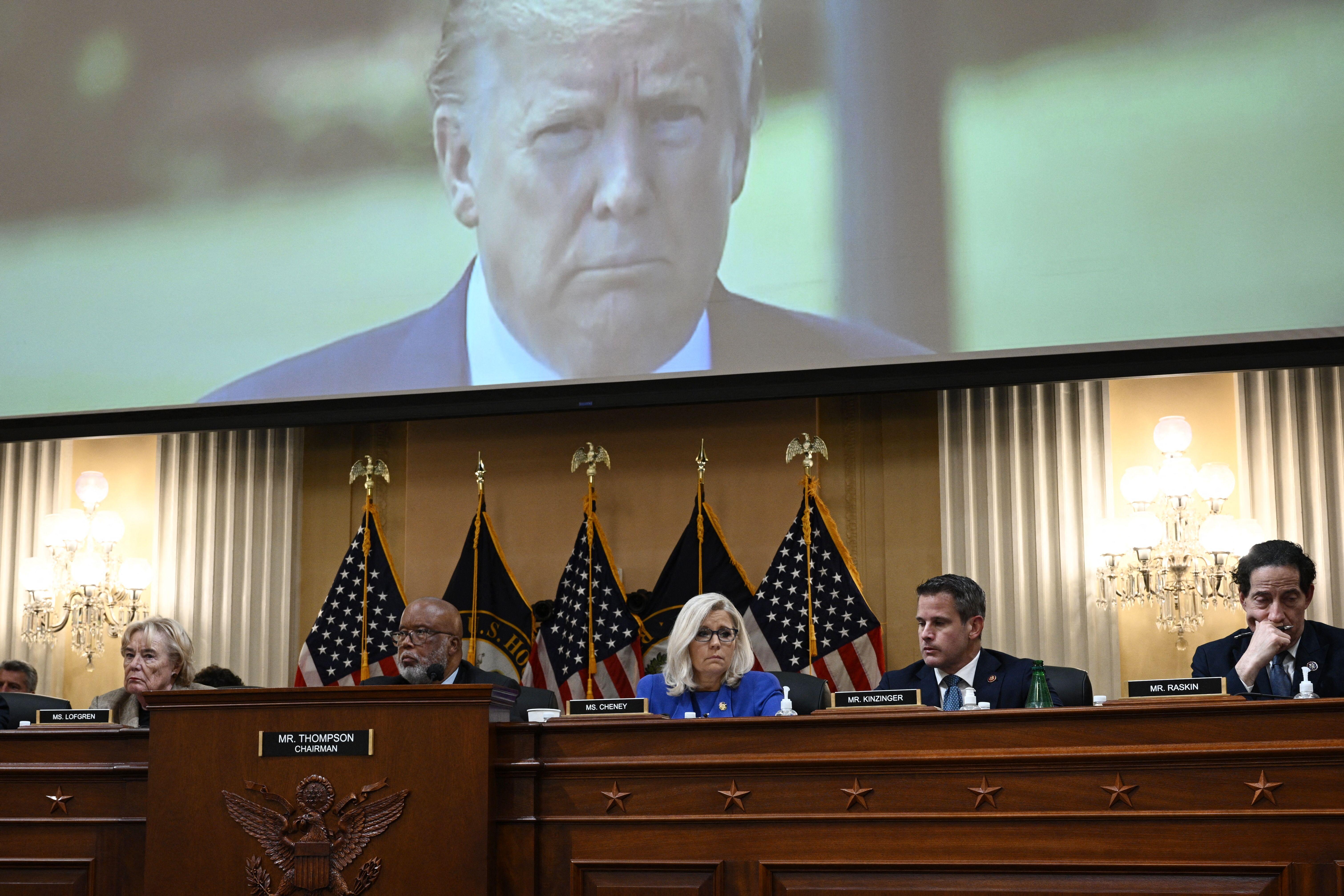
Slate, Ben Mathis-Lilley, 10 Jun 2022: Does Donald Trump Really “Know” Anything?.
On one level, it’s fair to wonder how anybody “knows” anything. How do we truly know? What does it mean to “know”? This is a deep philosophical, epistemological, question. Perhaps correspondence to reality? But who’s to say when different people have such different takes on what is real? Thus DT and his MAGA followers.
How many lawyers and other experts have to tell Donald Trump the same thing before we can agree he “knows” a thing?
This was the unspoken theme of last Thursday night’s primetime Jan. 6 select committee hearing, at least from a legal perspective. Committee chairman and Mississippi Rep. Benny Thompson said in his opening remarks that the series of planned hearings will depict “a sprawling, multi-step conspiracy aimed at overturning the presidential election,” and prove that “Donald Trump was at the center of that conspiracy.”
With many examples of DT’s “history of justifying seemingly illegal behavior by insisting that he was not aware of something that was obvious, even at the time, to many other people.”
What’s becoming more and more clear from these hearings is that DT simply doesn’t “know” anything that doesn’t serve his purpose. He is not about knowing or understanding reality. Told over and over again that he had lost the election last November, he went before his supporters and claimed that they really had won the election. And he keeps saying it. And his supporters keep believing it.
Is he so completely cynical and egomaniacal that he lives the story he wants to be true, knowing that his followers will believe anything? Or does he somehow *really* believe that he can’t possibly have lost the election, since he’s obviously so great and has so many hundreds of fans appear every time he appears in public? (There was an echo of that recently when “Christian nationalist” Kandiss Taylor, a candidate in Georgia’s gubernatorial primary, got only 3.4% of the vote yet refused to concede; she apparently believes very highly in herself and can’t possibly believe the whole world doesn’t see her the same way.)
I suspect the latter. He really believes it. The same way so many of the faithful *really believe* what they *know* to be true.
\
A different sense of knowing is to what extent any of us knows very much about the world. We “believe” that a country called Zambia exists, for example, even though we’ve never been there. In what sense do we “know” this? Perhaps nothing is real and what we are led to “believe” is a simulation. There is a vast range of philosophical/epistemological possibilities here. But even taking a pragmatic, non-conspiratorial thinking stance, it’s still true that much of what we “believe” is based on a consensus of our fellow humans, and our confidence (not faith, a different thing) based on experience that we can trust the things we know indirectly through the networks of knowledge in books and the world wide web.
A book called The Knowledge Illusion: Why We Never Think Alone (2017), by Steven Sloman and Philip Fernbach, explores this idea; I’ll cover it here soon.
This is how real knowledge expands and the species grows and matures. Those who are certain of knowledge despite evidence, whether politicians or religious fundamentalists, undermine such progress. And they may well prevail.





